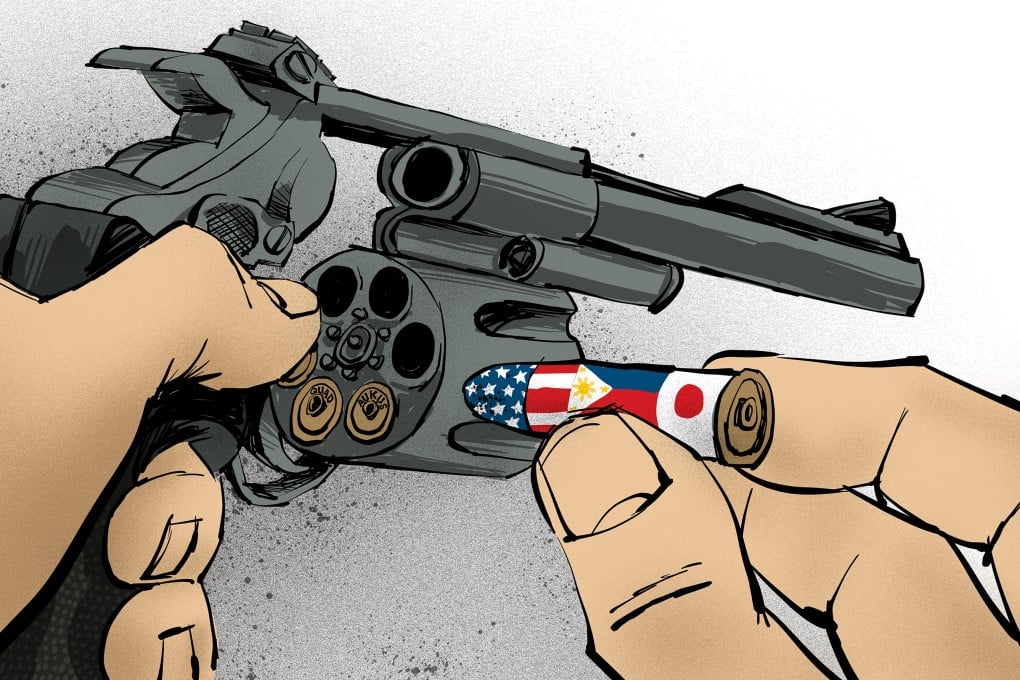Advertisement
Opinion | Can US-Philippine-Japanese military ties really protect regional security?
- Japan, the Philippines and the US will hold a historic summit this month to deepen military cooperation amid China’s resurgence as a naval power
- With increased tensions over Taiwan and the South China Sea, the trilateral security arrangement is likely to reinforce zero-sum geopolitics in Asia
Reading Time:4 minutes
Why you can trust SCMP
12

The historic Japan-Philippine-US summit this week will coincide with a significant upgrade in military cooperation among the three nations. The US and Japan are set to upgrade their alliance to deepen military cooperation amid new global geopolitical uncertainties.
Advertisement
Meanwhile, the Philippines and Japan are set to sign a reciprocal access agreement, which would facilitate expanded joint drills and potentially pave the way for a large-scale deployment of the Japan Self-Defence Forces to Philippine bases. Moreover, the three allies are also expected to tighten intelligence-sharing and cybersecurity cooperation with one another.
The emerging trilateral security grouping is part of a broader network of ‘minilateral’ groupings in the region such as the Aukus security pact and the Quadrilateral Security Dialogue. Though unmentioned in the White House statement on the coming trilateral summit, China’s resurgence as a major naval power in Asia is likely to be a central theme of the meeting.
The emerging alliance between the Philippines, Japan and the US is an integral part of the Biden administration’s “integrated deterrence” strategy, especially amid growing fears of potential conflicts over Taiwan and the South China Sea. The summit is also meant to cement Japan’s position as a security provider, accelerate the Philippines’ military modernisation and “Trump-proof” the trilateral alliance in light of deepening concerns over American isolationism under a prospective second Trump presidency.
Over the past decade, multilateralism largely lost its lustre on many fronts, especially in Asia. The Association of Southeast Asian Nations has largely failed to live up to expectations, namely its earlier promise to become an engine of inclusive regional integration. The regional body has broadly failed to address major crises even in its own backyard, most notably the ongoing civil war in Myanmar. The negotiations over a code of conduct in the South China Sea, meanwhile, have remained broadly open-ended with little concrete results.
Advertisement
Thanks to thick webs of economic interdependence and investment ties among Asian nations, however, there are reservations against any Nato-like military alliance. Instead, a growing number of regional states are embracing “multi-alignment”, refusing to side with any superpower against another, as well as various forms of “minilateral” cooperation, namely ad hoc, flexible, issue-specific cooperation among few like-minded powers.

Advertisement
